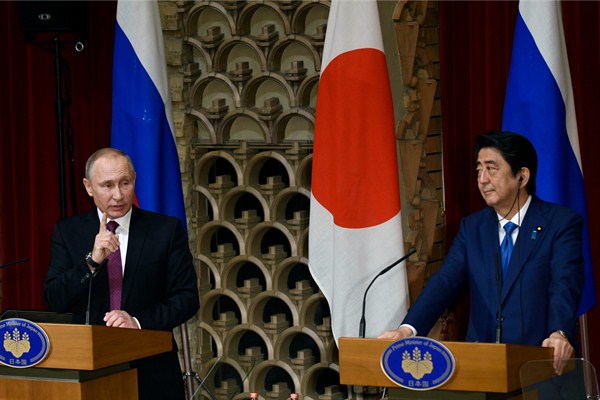Earlier this month, Russian President Vladimir Putin touched down in Yamaguchi, the home prefecture of Japanese Prime Minister Shinzo Abe, to begin a much-anticipated summit. Abe arranged a personal venue for their meeting: a famous hot spring bath in his hometown of Nagato. Abe has met with Putin more than 15 times since taking office in late 2012, even after high-level diplomatic engagement with Russia came under scrutiny from the international community, especially Tokyo’s ally in Washington, over Moscow’s annexation of Crimea and destabilizing activities in eastern Ukraine.
Abe had hoped that his dogged approach to appeal to Moscow, along with the personal touch of capping it off with “hot tub diplomacy,” might help put into place a long elusive deal on the territorial row between Japan and Russia over the Southern Kurile Islands, referred to as the Northern Territories in Japan. The islands have been a stumbling block to improving ties between Japan and Russia for decades since the Soviet Union assumed possession of them at the end of World War II.
Moscow and Tokyo disagree on the historical documents and treaty language regarding the sovereignty of the islands. Japan has long demanded that Russia return the islands as a precondition for formally signing a peace treaty to end hostilities from World War II. While the finalization of a peace treaty would be mainly a formality, it would attach significant symbolic importance to a Japan-Russia detente and, in principle, open the door for even more economic cooperation.

